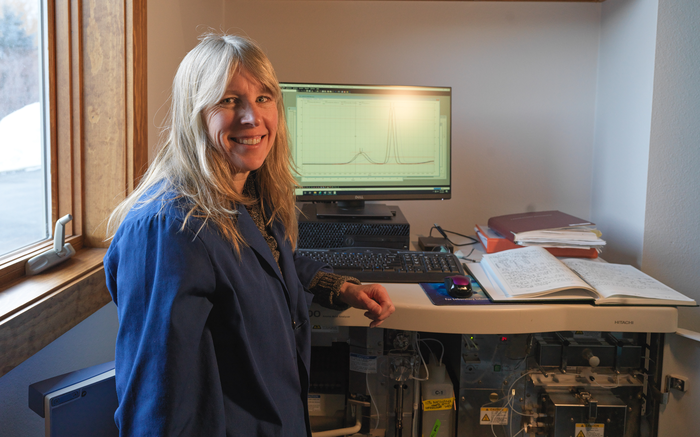Although symptoms of advanced Alzheimer’s disease are well known, diagnosis of Alzheimer’s disease in its earliest stages requires careful cognitive testing by neurologists.

Credit: © 2022 Paul Alan Cox
Although symptoms of advanced Alzheimer’s disease are well known, diagnosis of Alzheimer’s disease in its earliest stages requires careful cognitive testing by neurologists.
Discovery of a unique ratio of metabolites from blood samples of early-stage Alzheimer’s patients promises to speed diagnosis, allowing earlier treatments to be initiated.
“We were delighted to discover that the ratio of two molecules, 2-aminoethyl dihydrogen phosphate and taurine, allows us to reliably discriminate samples of early-stage Alzheimer’s patients from controls,” said Dr. Sandra Banack, lead author of the report in PLOS ONE and Senior Scientist at the Brain Chemistry Labs in Jackson Hole.
The blood samples were drawn from patients enrolled in an FDA-approved Phase II trial at Dartmouth Hitchcock Medical Center in New Hampshire and then shipped to the Brain Chemistry Labs for analysis.
Current attempts to diagnose Alzheimer’s disease from blood samples depend on the presence of amyloid fragments, the molecules that cause brain tangles and plaques. “At the Brain Chemistry Labs, we consider amyloid plaques to be a consequence rather than the cause of Alzheimer’s disease,” Dr. Paul Alan Cox, Executive Director of the Brain Chemistry Labs explains. “What is exciting about this new discovery is that it does not depend on amyloid and the assay can be performed on analytical equipment that is already present in most large hospitals.”
Their report, written with Alzheimer’s expert Dr. Aleksandra Stark, “A Possible Blood Plasma Biomarker for Early-stage Alzheimer’s Disease” is being published this week in PLOS ONE.
Journal
PLoS ONE
Method of Research
Experimental study
Subject of Research
People
Article Title
A Possible Blood Plasma Biomarker for Early-stage Alzheimer’s Disease
Article Publication Date
21-Apr-2022
COI Statement
Brain Chemistry Labs has applied for a patent: the authors declare no competing interests.




